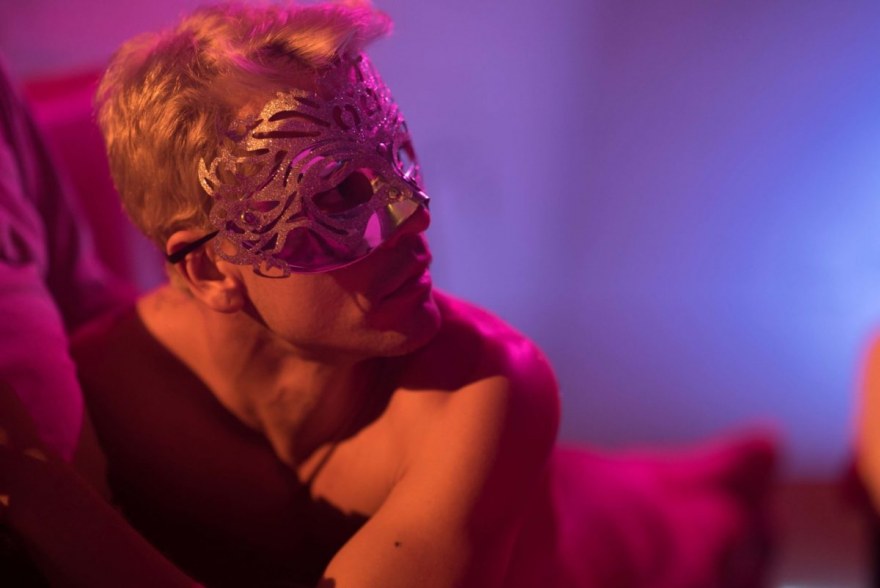Tea time with Ursinho
An interview with Stéphane Olijnyk, director of Ursinho
Why did you choose to shoot your film in Rio?
Because it’s warm in Rio… 😉
Initially, I wanted to make the film in France, with a storyline about a couple that was not well-suited. I would have never thought to make my film in Rio had it not been for all the stories I heard from gay friends who regularly vacation there. I thought, maybe I could do something over there, in this country that I knew nothing about. Not at all happy with my screenplay, and still traumatized from the tumultuous experience of my last short film, Chasse à l’homme shot in Auvergne, I thought I needed to go someplace new. Upon arrival in Rio, it was obvious to me. My French Nounours (Teddy Bear) would become a Brazilian Ursinho.
How did you imagine the character Ursinho?
From the beginning, my protagonist was passive and corpulent, and he was attracted to a slender and well-sculpted body. This contrast interested me. I had previously written another script about a couple: one fat and one thin, as a reference to Polanski’s short film. I often thought about that script, and Ursinho became an extension of it. I wanted Ursinho to be big and poor. It took me awhile to decide to make him a cleaning man. I wanted him to have that lower social status. Also, this allowed him to go from one place to another, and to pass through many different and diverse social spaces.
How did you find the lead actor?
Duda, the casting director, introduced me to Digão. From the first screen tests in Rio, his work was strong and dense, without ever overdoing it. Unlike other actors, such as Leandro Firmino (Zé Pequeno in City of God) or Babu Santana, who was also cast in the same role, Digão did not have to make any effort to be the character. He was Ursinho. We were initially concerned about his height, as he’s nearly two meters tall.
Did you research favelas and the difficulties for their residents – poverty, promiscuity, social pressures…?
I did not try to research, I just wanted to experience things as we made the film. I stayed in the place where Ursinho lives with his father in the film. All the moving around that Ursinho does are things I did too, going up and down those same stairs. I took the bonde (the tram we see). I also did a homestay in Copacabana to better capture the feeling of these large, luxurious, old-fashioned apartments. Everything that appears on screen came from my experience on the ground, the people I met. All of that inspired me.
And why could Ursinho not have a mother?
The absence of a female character means the absence of potential offspring. The film is about male homosexuality, and I wanted to add to this suffocation: being amongst peers who seek sterile pleasure. As Cronenberg said, « homosexuality is pure sexuality because it is not concerned with reproduction ».
Does the short format offer any particular freedom?
Having never made a feature, I don’t know if the short form offers more freedom. I feel sometimes that there are just as many constraints because of the very tight budget. For the 11 day shoot, there was not a moment to spare. If I had gotten more financing, I think I would have had more freedom, maybe more days to shoot in order to experiment more and try things.
If you have been here before, tell us an anecdote about Clermont-Ferrand Film Festival. If not, what are your expectations?
The last time I came was in February 1996 when I lived in Clermont-Ferrand. Friends from Lyons came to visit and take part in the festival. We were all very excited, as it was our first festival. So excited, in fact, that one of my friends passed out while watching a short film. The images were too shocking. If memory serves, it was an old woman who ripped the nipple off a young man who was tied to a bed.
To see Ursinho, come to the screening of the National Competition F11.








